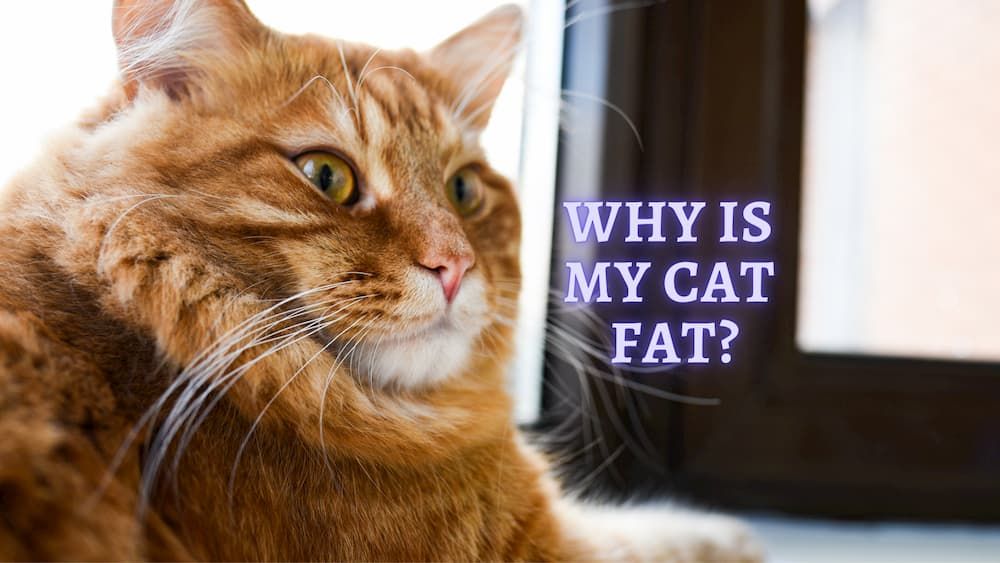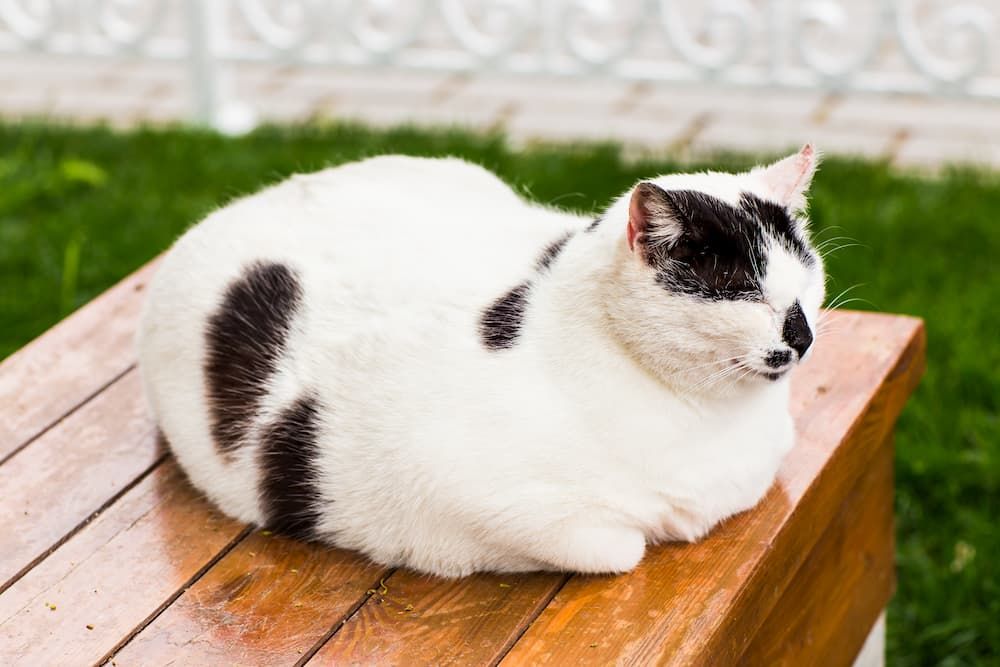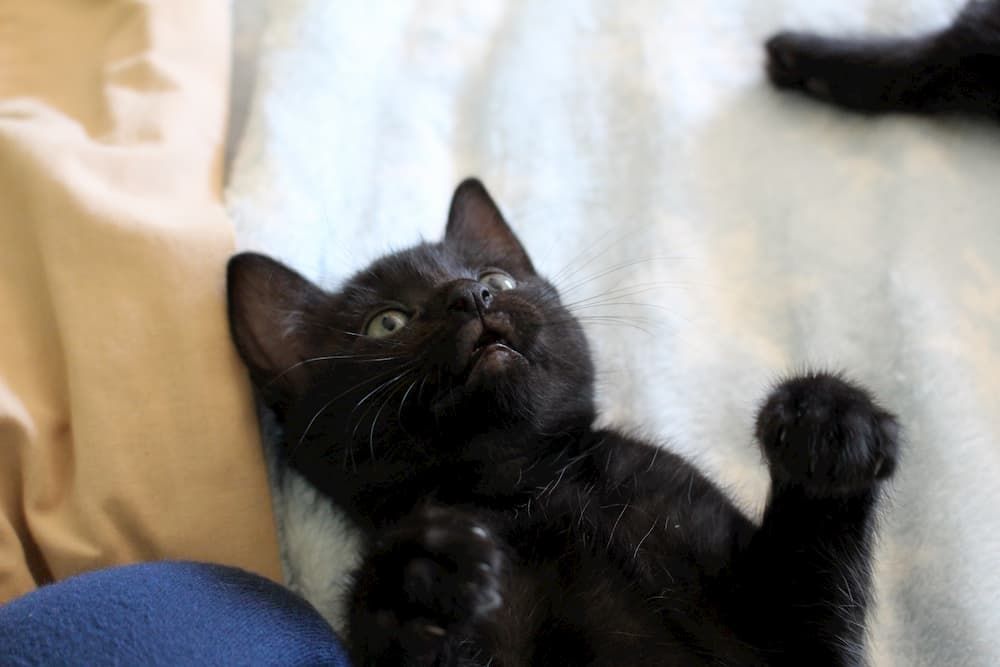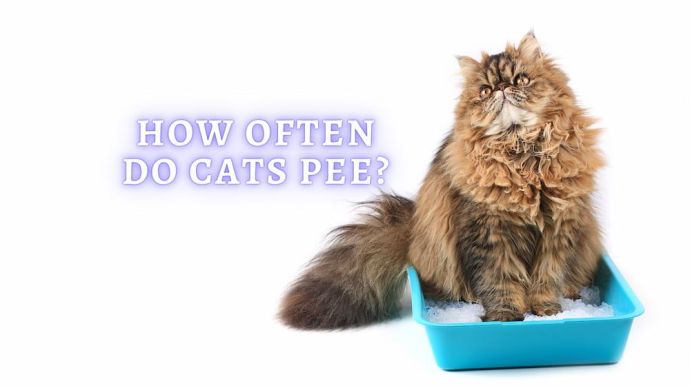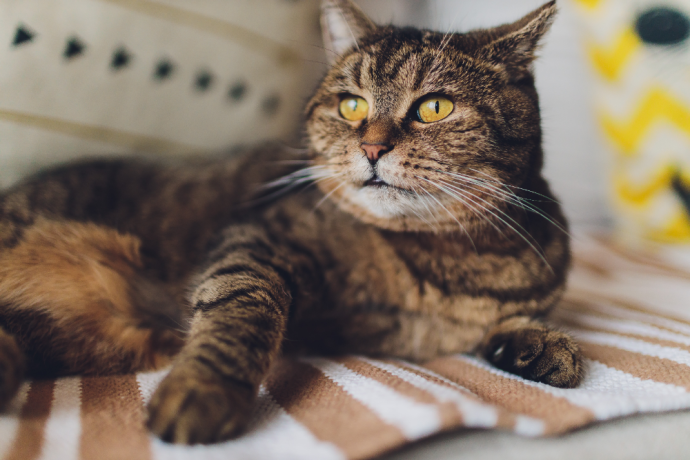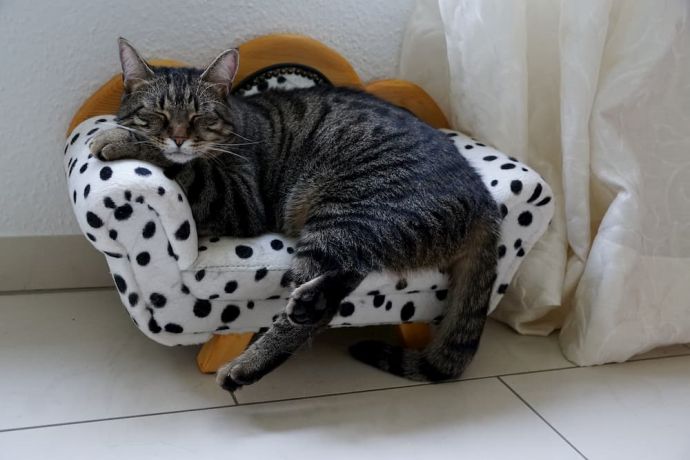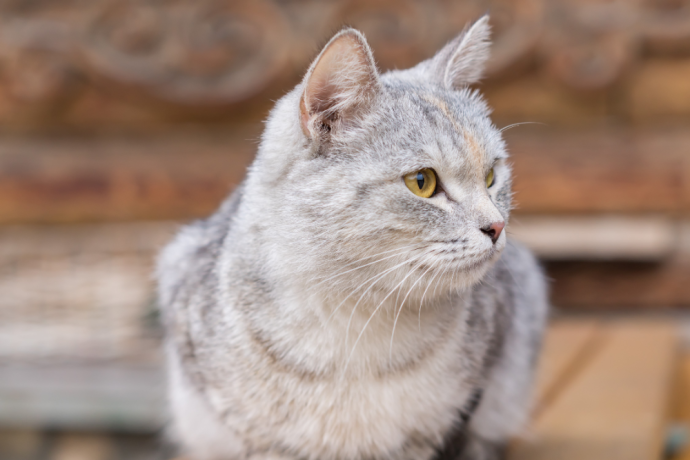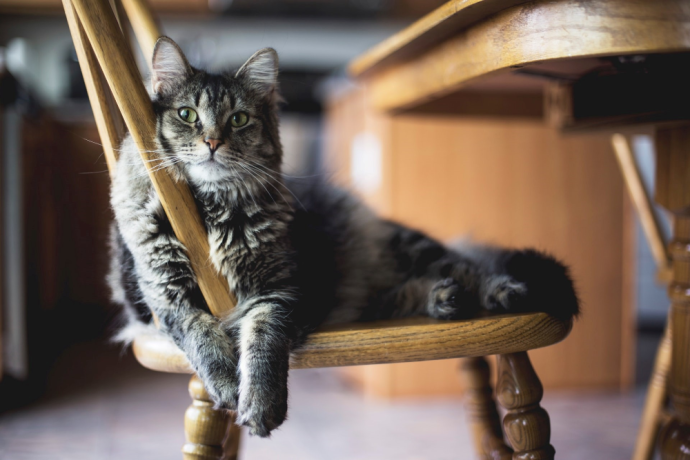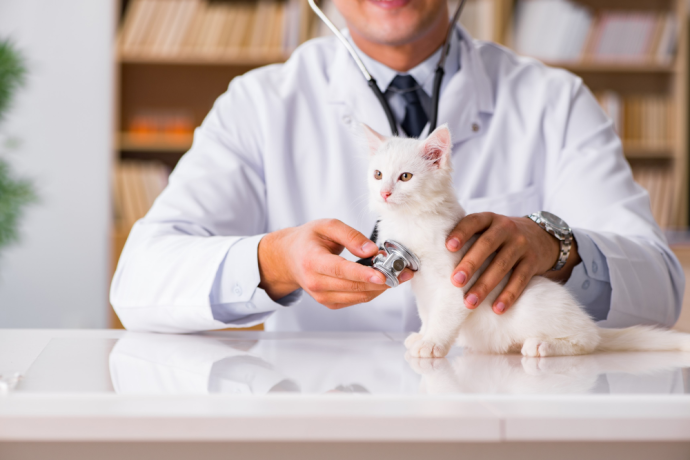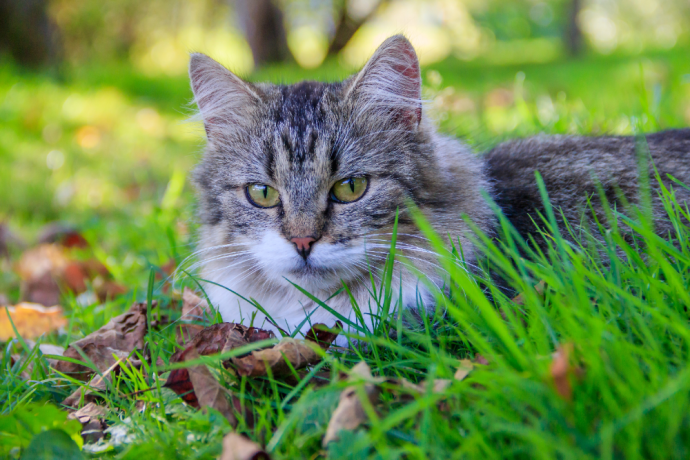Why Is My Cat Fat? (Vet Explain)
Written by:
Author: Dr. Catherine Barnette
Dr. Barnette is a small animal veterinarian with 14 years of clinical experience in small animal general practice. She currently divides her time between part-time clinical practice and freelance writing, while also volunteering in her community. Her primary medical interests are preventive medicine and client education.
View all 3 articlesLearn about our editorial process and veterinary review board.
Viewed: 211
Updated on: 02/14/2023
If your cat is overweight, you’re in good company! The Association for Pet Obesity Prevention [1] estimates that approximately 60% of cats in the United States are overweight. Although feline obesity is a common issue, it isn’t one that should be taken lightly. Obesity can predispose cats to several significant health problems.
Like humans, all animals have different metabolisms. Some cats can eat a typical commercial diet and remain healthy, while others can eat a similar diet and become obese. Feline weight gain can be frustrating, but it isn’t insurmountable.
Why do Cats gain weight?
For a cat to maintain a healthy weight, the pet must have a calorie intake approximately equal to the number of calories burned through exercise. Cats can become overweight for two reasons: overeating (excessive calorie intake) or not exercising enough (bad calorie burn).
Obesity is common in pets due to their feeding habits and lifestyles. If you think about a stray or feral animal’s lifestyle, these pets typically eat small meals only as they can catch prey. If a pet can’t catch a mouse or other small animal, it can’t eat. Similarly, stray cats spend significant energy roaming outside, chasing prey, or looking for cast-off food items.
Contrast this image of an outdoor cat to the lifestyle of most of our furry friends. Instead of expending energy chasing small prey, our pets often spend their days lounging on a sofa or armchair, being offered as much commercial food as they are willing to eat. When you think of it this way, it isn’t challenging to understand the underlying causes of feline obesity!
Overweight Cats Health Problems
Like humans, pets can suffer several adverse medical effects caused by obesity.
1. One potential negative effect of obesity is arthritis
This painful condition is caused by a combination of factors. First, an overweight pet puts more pressure (strain) on its joints than an animal that is at a healthy weight. Second, obesity can trigger chronic inflammation within the body, including inflammation within the joints. These two factors combine to make arthritis more common in obese cats.
2. Additionally, obese cats are prone to diabetes
Obesity interferes with the body’s metabolism, affecting an animal’s cells’ ability to take up insulin and process sugar usually. Diabetes can be treated with insulin injections, but it’s far easier to prevent diabetes than it is to treat it!
3. Overweight cats often have trouble grooming themselves
This can lead to several possible health impacts, including matted coats, skin infections, and urinary tract infections. If your pet is too heavy to groom herself, it’s essential to pay special attention to brushing and grooming to ensure that she doesn’t develop infections related to poor hygiene.
READ MORE: Can Cats be Vegan?
How can weight gain in Cats be prevented?
Preventing weight gain in requires carefully balancing your pet’s calorie intake and calorie expenditures.
Regulating your pet’s calorie intake requires careful attention to your animal’s diet. Feed your pet measured meals of a high-quality diet. Don’t leave food out for your cat to eat freely, because most cats will overeat if fed in this manner. Use your pet food’s label recommendations as a starting point for feeding quantity, but realize that many pets require even less than the quantity stated on the label recommendations in order to maintain a healthy weight.
Next, ensure that your pet is getting enough exercise. Indoor pets can be encouraged to exercise in a number of ways. Some animals respond well to toys, such as balls and teaser toys (feathers on the end of a wand). If your animal is hesitant to play, consider using a puzzle feeder that requires your pet to be active in order to obtain food.
By avoiding overfeeding and providing exercise, you can prevent obesity in your pet.
RELATED ARTICLE: Cat Nutrition Guide
How to help cat lose weight?
READ MORE: Best Cat Food For Weight Loss
First, consult your veterinarian before putting your pet on a strict weight loss program.[2] Your veterinarian can rule out underlying medical issues that may be contributing to your pet’s weight gain.
Additionally, your veterinarian can offer guidance on how to promote gradual, healthy weight loss. Your pet must lose weight slowly and gradually, instead of going on a “crash diet”. Overweight cats who experience a sudden and drastic reduction in calorie intake can develop a life-threatening liver disease called hepatic lipidosis.
Ultimately, weight loss will require balancing the same “calories in versus calories out” equation that was discussed earlier. Through a combination of gradual calorie reduction and increased exercise, your pet can likely return to a healthy weight.
Article Sources:
- “Association for Pet Obesity Prevention.” Association for Pet Obesity Prevention, 12 Nov. 2020, petobesityprevention.org/.
- Little, Susan, et al. “Feline Obesity: Dietary Therapy and beyond (Proceedings).” DVM 360, dvm360.com/view/feline-obesity-dietary-therapy-and-beyond-proceedings.
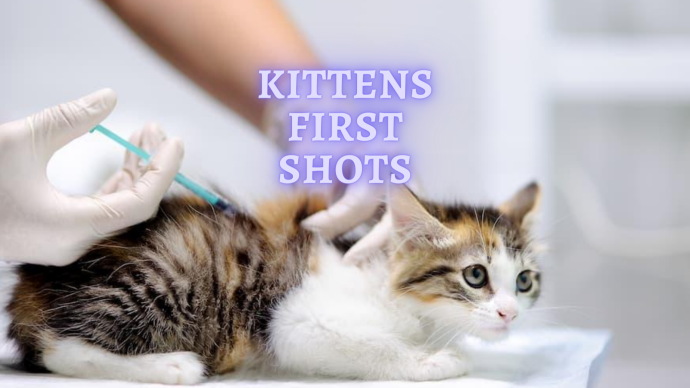 Cat Veterinary Tips Kittens First Shots: When do Kittens get their First Shots?
Cat Veterinary Tips Kittens First Shots: When do Kittens get their First Shots? - 500
- 0
 Cat Care Why Does My Cat Attack My Legs? 10 Reasons Why and What To Do About It (Vet-Approved Advice)
Cat Care Why Does My Cat Attack My Legs? 10 Reasons Why and What To Do About It (Vet-Approved Advice) - 45567
- 21
 Cat Veterinary Tips Cat Stomach Gurgling: Vet Advice on Why is Your Cat Stomach Gurgling?
Cat Veterinary Tips Cat Stomach Gurgling: Vet Advice on Why is Your Cat Stomach Gurgling? - 35340
- 4
 Cat Veterinary Tips My Cat Lost its Voice: Can Cats get Laryngitis? (Vet Advice)
Cat Veterinary Tips My Cat Lost its Voice: Can Cats get Laryngitis? (Vet Advice) - 23247
- 13









